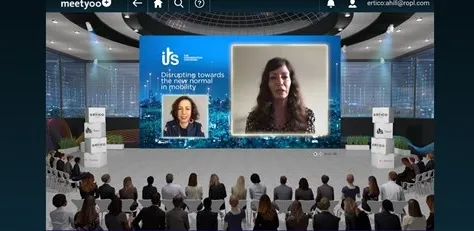
Mobility companies need to take heed of existing examples and collaborate when developing new business models, according to Sandra Witzel, head of marketing at Mobility as a Service specialist Skedgo.
"We don't have to reinvent the wheel," she insisted at the Virtual ITS European Congress this week.
Witzel suggested there were good examples of open data policies in Finland, for example, or in Skedgo's own work with Transport for New South Wales in Australia.
"There is so much out there: reach out to your networks and look around. Put together your own playbook that works for you."
She also said that it was important to have regard for the environment in which you are operating, rather than just attempting to enact your vision regardless.
"We don't work on a blank canvas," said Witzel.
"We innovate and disrupt in a living, breathing environment. We have to find a balance between regulation and innovation. We can use digital services to connect all of the modes in a smarter way."










